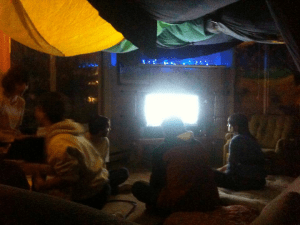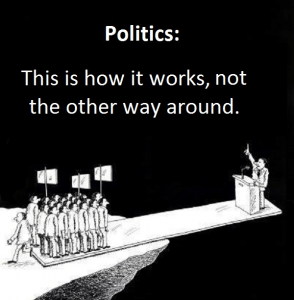“What you advocate for is too extreme. Why can’t you compromise?”
There are moderates in every age who hem and haw about the injustices of their time. But I think there are moral absolutes. It’s just not obvious to everyone until afterwards.
Slavery was wrong. Unequivocally. Segregation and Jim Crow was wrong. Child labor was wrong. Monarchies were wrong (there are still monarchies but in name only, without the absolute power of the past). Women not having rights was wrong. Apartheid was wrong. The list goes on. There are absolutes. Some things are just wrong.
But they weren’t seen as absolutes at the time. Moderates and centrists asked “But how will we do that?” “That will change everything” “Our system/economy is built on this, how could we do things another way?” “Can’t we compromise?” “Can’t we slow down?” “You’re asking for too much.” They were scared of change and of losing their positions of power and privilege.
Every courageous leader, every successful movement, every person we look back on as a hero, worked toward a fundamental rejection of the status quo and the systems that existed at the time. They saw injustice and they opposed it. Unequivocally. And so they were all seen as extreme in their time and opposed (and often murdered). Now we see them as heroes and visionaries. And opposition to their causes are the ones that are viewed as extreme.
As always, MLK said it well:
“I have been gravely disappointed with the white moderate. I have almost reached the regrettable conclusion that the Negro’s great stumbling block in the stride toward freedom is not the White Citizen’s Council-er or the Ku Klux Klanner, but the white moderate who is more devoted to “order” than to justice; who prefers a negative peace which is the absence of tension to a positive peace which is the presence of justice; who constantly says “I agree with you in the goal you seek, but I can’t agree with your methods of direct action;” who paternalistically feels he can set the timetable for another man’s freedom; who lives by the myth of time and who constantly advises the Negro to wait until a “more convenient season.”
– Letter from a Birmingham jail (http://www.hartford-hwp.com/archives/45a/060.html)
In our current time, I would say:
Keeping children in cages is wrong (happened under Obama, Trump, and still with Biden). People going bankrupt in order to live (healthcare) is wrong. The global caste system of borders is wrong. Police killing people is wrong. People having to live on the streets is wrong. Forcing anyone into cages (prison) is wrong. Poisoning air, water, and land is wrong. Burning fossil fuels is wrong. Destroying the planet’s ability to support future generations is wrong. People going hungry is wrong. People being forced to leave their homes is wrong (evictions and deportations). People profiting off the labor of others is wrong (capitalism). People not having access to healthcare is wrong. Discriminating against gay or trans people is wrong. And much much more.
I think these are moral absolutes. Society doesn’t see them that way yet, but I think eventually it will, as we do with the injustices of the past.
All of these things (both now and in the past) have been done or were done by a state (nation). That is part of why anarchist oppose the state. And all of it is enforced or protected by police (who are the violent arm of the state). That is why we oppose police. Together they create, uphold, and enforce these unjust systems.
Some suggested readings:
- Life without law – An excellent general introduction to Anarchism – https://tangledwilderness.org/life-without-law/ (Short)
- What Will It Take to Stop the Police from Killing? – A good overview of the many avenues and attempt made to try to stop the police from killing, and why abolition is necessary. – https://crimethinc.com/2020/05/31/what-will-it-take-to-stop-the-police-from-killing (Short)
- The Mythology of Work – a general introduction to anti-capitalism / anti-work – https://crimethinc.com/2018/09/03/the-mythology-of-work-eight-myths-that-keep-your-eyes-on-the-clock-and-your-nose-to-the-grindstone (Short)
- Designed to Kill – An explanation of how the US border is not designed to keep people out, but designed to kill those who try to cross, while allowing some through to do jobs people don’t want. It’s a little old now but I think a lot is still very relevant. – https://crimethinc.com/2011/05/22/designed-to-kill-border-policy-and-how-to-change-it (Moderate length)
- Reformist reforms vs abolitionist reforms – A chart that explains the difference between reforms that move us toward abolition and those that don’t – https://static1.squarespace.com/static/59ead8f9692ebee25b72f17f/t/5b65cd58758d46d34254f22c/1533398363539/CR_NoCops_reform_vs_abolition_CRside.pdf (short)



